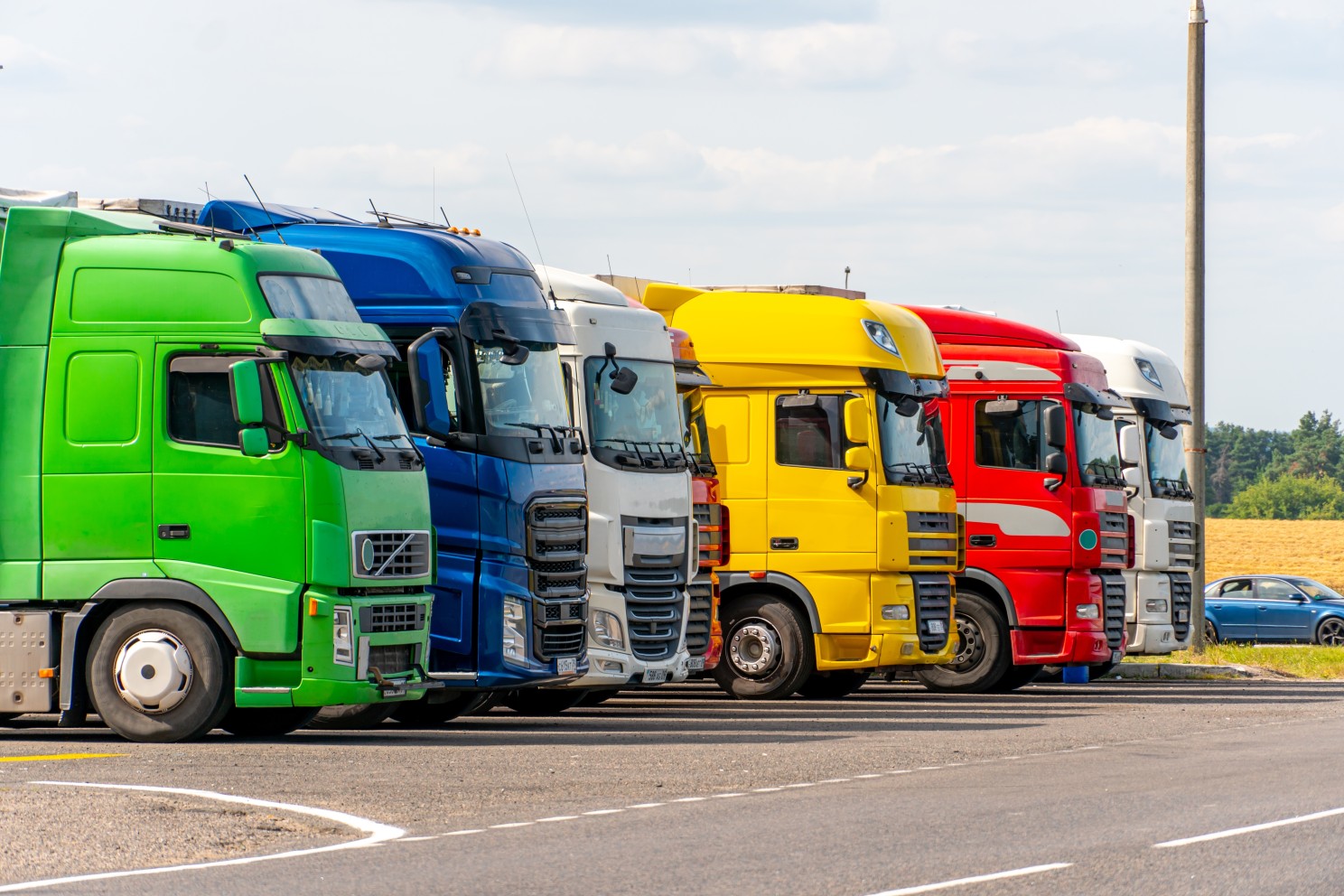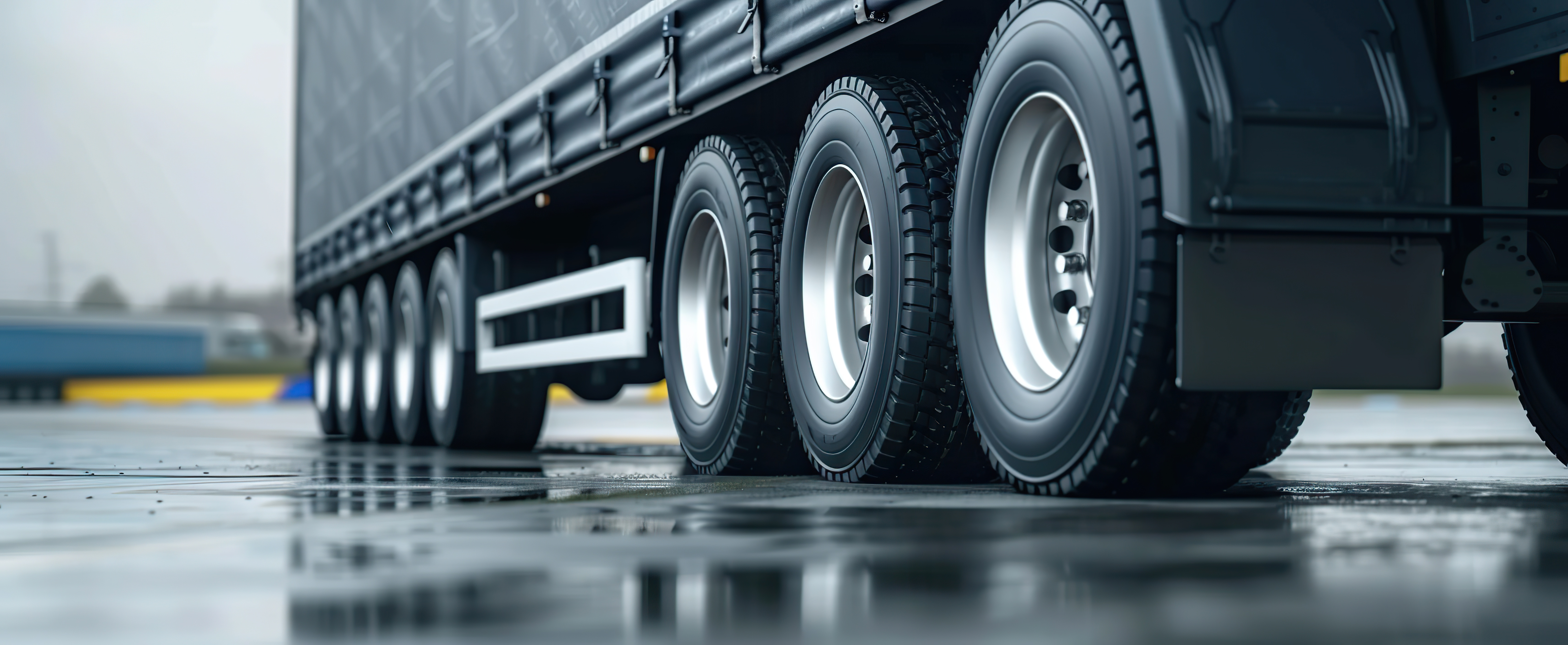
Josh Cousens
Hvad flådechefer skal vide om EU's transportregler
Oprettet: 07.04.2025
•
Opdateret: 07.04.2025
Vi ved, at flådechefer jonglerer med mangel på chauffører, stigende brændstofomkostninger og den store opgave at holde lastbilerne i overensstemmelse med reglerne. Læg dertil et komplekst net af EU-transportregler, der udvikler sig hurtigere end din flådes kilometertal. Lyder det bekendt?
Velkommen til den europæiske transportfront.
Fra regler om driftstid til emissionsmål er EU's lovgivningslandskab en udfordring, men også en køreplan for mere innovativ, sikker og bæredygtig transport.
Uanset om man driver et familieejet firma i Polen eller fører tilsyn med paneuropæiske operationer fra Storbritannien, er det ikke valgfrit at være på forkant med reglerne. Det er overlevelse.
Hvorfor flådechefer skal være opmærksomme
EU's transportregler påvirker næsten alle aspekter af din virksomhed: chaufførtimer, emissioner fra køretøjer, grænsekontrol, parkering og digital compliance. Hvis du kommer bagud, kan det betyde bøder, forsinkelser eller tab af kontrakter.
Den gode nyhed er, at hvis du forstår systemet, kan du bruge det til din fordel. At kende reglerne gør det lettere at få din virksomhed til at skille sig ud fra konkurrenterne.

Vigtige EU-transportregler, som alle flådechefer bør kende
1. Chaufførernes arbejdstid og love om fartskrivere
EU har strenge regler for, hvor længe chauffører må køre på vejene. Flådechefer skal sikre, at deres chauffører:
- Kør ikke mere end 9 timer om dagen (kan udvides til 10 timer to gange om ugen)
- Overskrid ikke 56 timers kørsel på en uge
- Tag en pause på 45 minutter efter 4,5 timers kørsel.
Digitale fartskrivere skal monteres i alle relevante køretøjer for at spore overholdelse. Manglende overholdelse af dette er en af de mest almindelige årsager til sanktioner.
Få mere at vide om [regler for fartskrivere her] (https://snapacc.com/newsroom/tachograph-rules-made-easy/).
2. Mobilitetspakken
Dette omfattende sæt af reformer forandrer transport på tværs af grænserne. De vigtigste ændringer omfatter:
- Regelmæssig returnering af køretøjer til deres hjemland hver 8. uge
- Ligeløn for chauffører, der arbejder i EU-værtslande
- Nye regler for cabotage og udstationering af chauffører.
Det er en game-changer for flådechefer, der fører tilsyn med international transport.
Få mere at vide om [ mobilitetspakken her] (https://transport.ec.europa.eu/transport-modes/road/mobility-package-i_en).
3. Emissioner og miljøregler
Lavemissionszoner (LEZ), CO2-mål for nye lastbiler og incitamenter til elektriske køretøjer er kun begyndelsen.
Flådechefer skal overholde Euro 7-emissionsstandarderne. Disse omfatter:
- Find ud af, hvor der er lavemissionszoner (især i byer som Paris, Berlin og Milano)
- Invester i renere teknologi eller eftermonter ældre køretøjer
- Spor emissionsdata til rapporteringskrav.
4. Intelligente fartskrivere og digital overholdelse
Den Europæiske Union presser på for at få automatiseret håndhævelse:
- Intelligente fartskrivere er obligatoriske i alle nye køretøjer
- Disse enheder sender GPS-data og kan fjernscannes af myndighederne
- Digitale flådestyringsværktøjer er ikke længere en luksus - de er dit juridiske sikkerhedsnet.
5. Grænseoverskridende parkerings- og hvileregler
Flådechefer skal planlægge parkerings- og hvilepladser i overensstemmelse med reglerne for chaufførernes velfærd:
- Chauffører skal tilbringe ugentlige hvileperioder uden for førerhuset
- Sikker lastbilparkering er ved at blive obligatorisk i nogle regioner.

Ofte stillede spørgsmål
Hvad er EU's regler for køretid for lastbilchauffører?
Flådechefer skal sikre, at chaufførerne følger de EU-regulerede grænser: 9 timer om dagen (med fleksibilitet), passende pauser og maksimale ugentlige/månedlige køretider.
Hvad er EU's mobilitetspakke for lastbiler?
Reformen af mobilitetspakken sikrer fair konkurrence, chaufførernes velfærd og ordentligt tilsyn med international gods- og vejtransport - med strengere regler for cabotage, løn og returnering.
Hvad sker der, hvis du bryder fartskriverreglerne?
Chauffører, der bryder fartskriverreglerne, kan forvente bøder, potentielle forbud og et skadet omdømme for firmaet. Manglende overholdelse er ikke bare en risiko - det er dyrt.
Kræver EU-landene emissionsstandarder for lastbiler?
Ja, det gør de. De fleste større europæiske lande og byer har strenge politikker og emissionsmål for at reducere luftforureningen fra køretøjer, så flådeoperatører er nødt til at planlægge fremad.
Det store billede
Flådechefer administrerer ikke kun lastbiler; de administrerer også risiko, overholdelse og omdømme for deres virksomhed. At forstå EU's transportregler er forskellen mellem at trives i moderne transport og at sakke bagud.
SNAP gør det job mere overskueligt. Fra digitale betalinger til lastbilparkering og compliance-løsninger støtter vi de mennesker, der holder Europa i bevægelse.
Reglerne bliver strammere, men kompetente flådechefer? De strammer også op.
Er du klar til at overholde reglerne, forblive konkurrencedygtig og drive fremtidens fragt? [Lås op for SNAP i dag] (https://register.snapacc.com/en).


